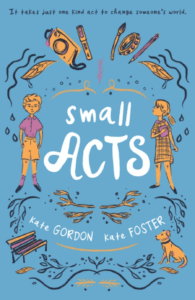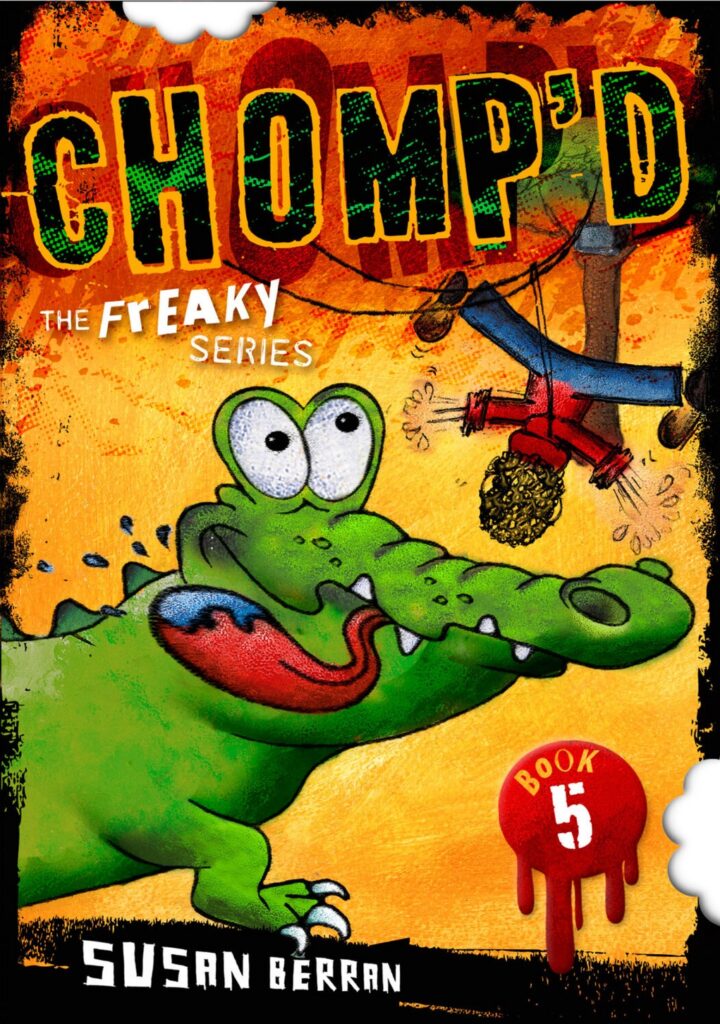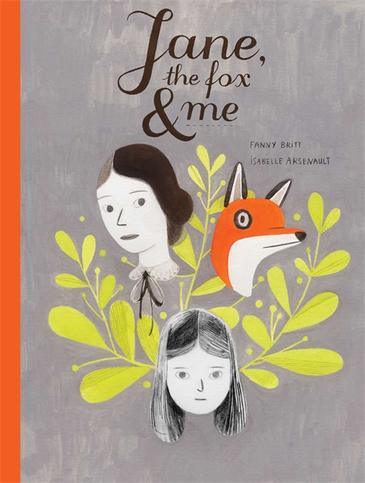Kate Gordon and Kate Foster, Small Acts, Walker Books, September 2024, 247 pp., RRP $16.99 (pbk), ISBN 9781760803018
Josh is overwhelmed by loud noises and messiness. He finds comfort in writing down his thoughts to process decision making or intense emotions. Ollie prefers quiet and she is most calm whilst creating artworks, composing poetry or spending time in a quiet garden. While Josh longs to make friends and join a school club, he finds it difficult to form connections with others. On the other hand, Ollie prefers to remain unnoticed. Though both have autism, they experience it in different ways.
After watching a class video about charitable acts that make a difference in society, Ollie and Josh are inspired to spread kindness themselves. However, being children already limits their options, and their autism presents additional challenges. How can they find ways to bring kindness to the world?
Small acts is a 2025 CBCA Younger Readers Notable book. This thoughtful expose of the challenges of living with autism is a collaborative work of two highly accomplished Australian authors, Kate Gordon and Kate Foster. Their original and vivid descriptions provide sensitive and realistic insights into the discomforts and difficulties that Ollie and Josh experience. Two of the many impactful metaphors are – “Her mind was buzzing, beeping, whirring, whizzing” on p.95 and “…in a voice that sliced into Josh’s ears and brain” on p47.
Ollie and Josh are believable and relatable characters and I felt that I got to know them. The book’s important insights into their inner emotional world has given me a deeper and more compassionate understanding of autism.
Whilst Small Acts is a character driven novel with a slow-paced storyline, it still has moments of intrigue and plot tension. Mysterious secrets keep readers engaged, while Ollie and Josh’s heartfelt journey towards overcoming their worries and frustrations adds emotional depth, drawing the reader into the story.
This book is suitable for children aged 9-12 years old. With thought provoking and important themes of neurodiversity, inclusion, kindness, belonging and coping with emotions, it promotes meaningful discussions – whether as a shared family read or within a Yr 5-6 classroom setting. The publishers have provided teacher notes with lesson activity ideas.
Reviewed by Barbara Swartz





